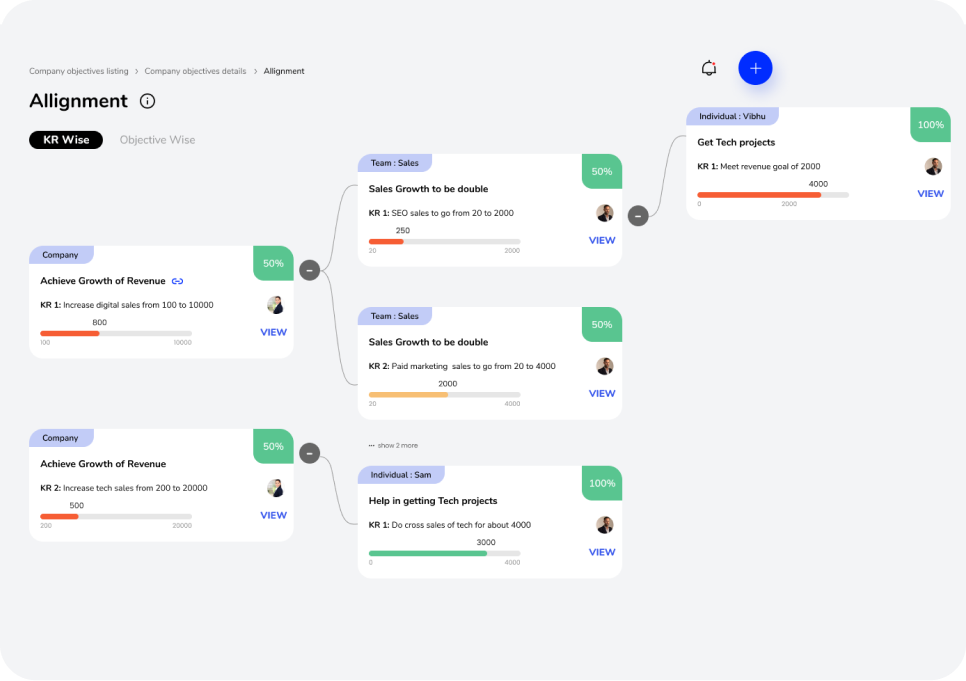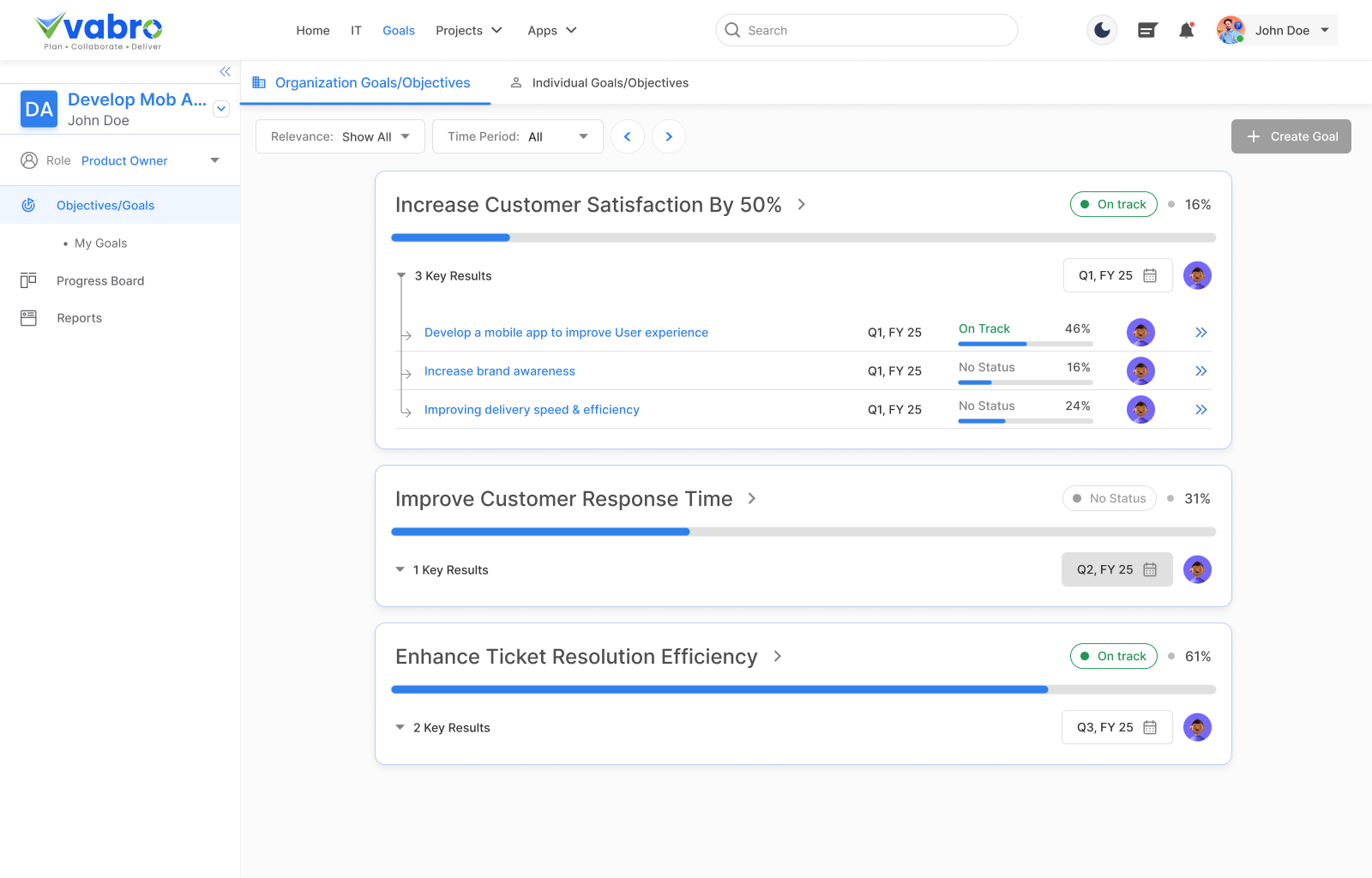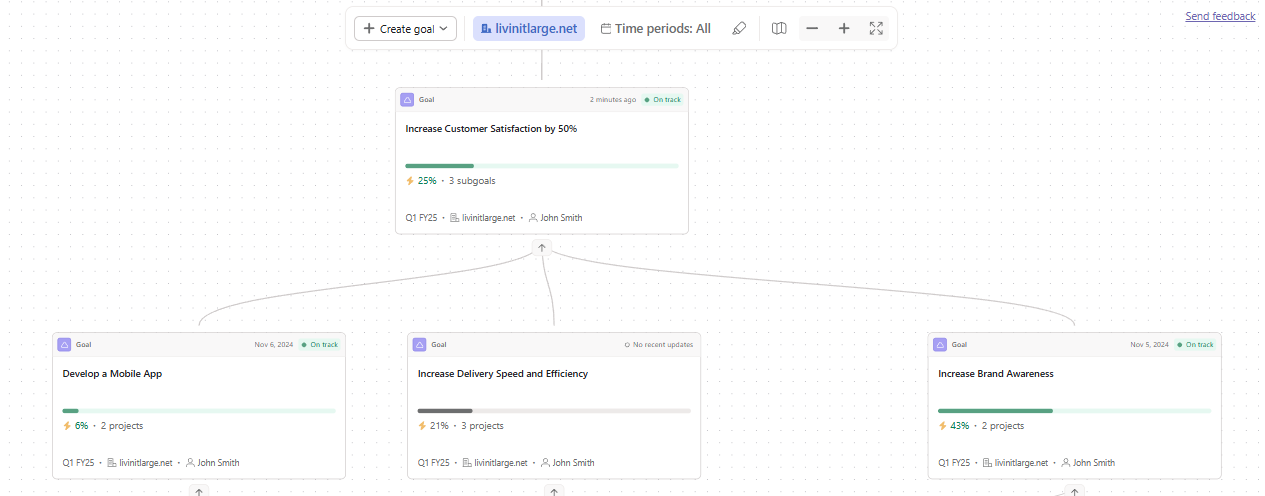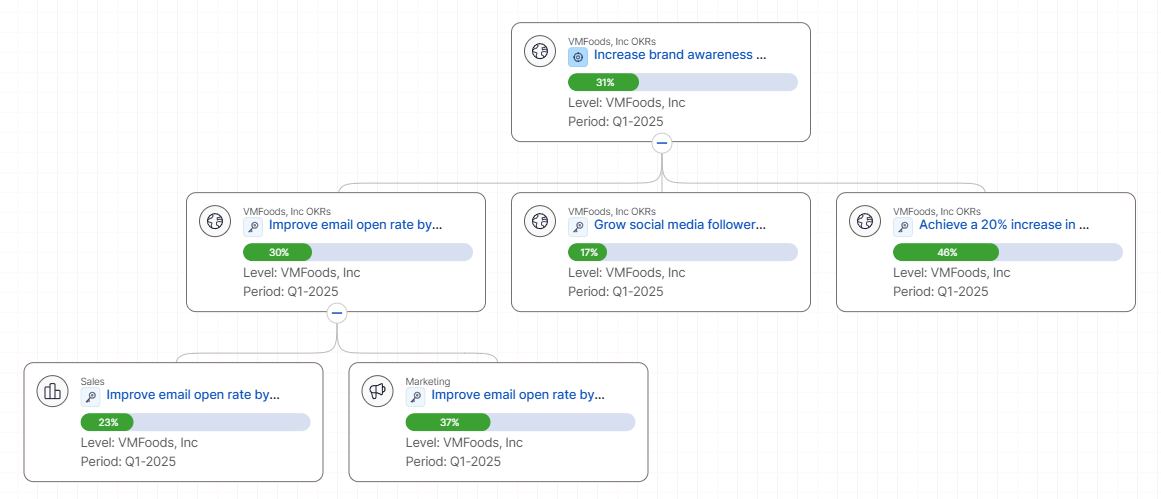This section ensures that the OKRs are aligned with the overall company or team strategy. You might note which higher-level company OKRs the individual OKRs support, ensuring there’s clear alignment at all levels.
-
Example:
- Objective aligns with the broader company goal of increasing market presence and customer engagement.
Example OKR Template
| Objective | Key Results | Owner | Progress | Score | Notes |
|---|---|---|---|---|---|
| Increase brand awareness and customer engagement | 1. Achieve a 20% increase in website traffic. | Marketing Team | 50% complete | 0.8 | Progress mainly driven by new blog content. |
| 2. Grow social media followers by 30%. | Social Media Manager | 75% complete | 0.9 | On track with influencer campaigns. | |
| 3. Improve email open rate by 10%. | Email Marketing Lead | 30% complete | 0.5 | Need to optimize email timing. |
Table 4 1: OKR Template Example
Figures 4-6, 4-7, and 4-8 show alignment of OKRs with Company objectives in a digital OKR tool.

Figure 4.6: Aligning OKRs with Company Strategies (Source: JOP)
Figure 4.6 above displays a goal alignment dashboard, illustrating company, team, and individual objectives with progress percentages, key results, and hierarchical goal connections for tracking performance.

Figure 4.7: Alignment of Individual OKRs with Company Goals (Source: Vabro)
Figure 4.7 above displays a goal-tracking dashboard displaying alignment of objectives and key results. it also shows progress bars, and status indicators, helping users monitor goal completion, track efficiency, and improve customer satisfaction within an organization.

Figure 4.8: OKR Hierarchy (Source: Asana)
Figure 4.8 above displays a hierarchical goal structure in Asana, showing objectives like increasing customer satisfaction, developing a mobile app, improving delivery speed, and boosting brand awareness.

Figure 4.9: Alignment of OKRs with Strategic Goals (Source: Profit.co)
Figure 4.9 above displays the "Create Objective using Template" window in Profit.co, listing predefined objectives like automating order management, delighting customers, and delivering amazing customer support.
